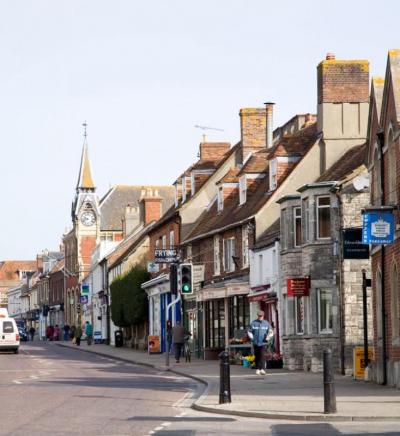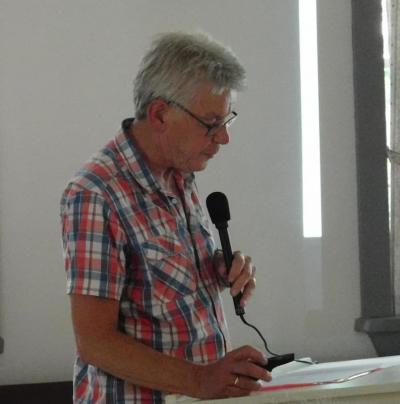Wareham, meet Wareham
Wareham’s Historical Society hosted a presentation on Monday night by Jon Wright about the history of Wareham — but not Wareham, Massachusetts. Wright is a visitor from Wareham, the market town in Dorset, England.
Although the Brits pronounce Wareham more like “Where-um,” there are many surprising similarities between the two towns. Wareham, England is close to the south coast of the island, and is bordered by two rivers: the River Frome and the River Piddle or Trent. There are many boaters on the River Frome, just as there are here. There is a long history of salmon fishing, comparable to this town’s involvement in shellfishing.
The only historic connection that Wright could find between the two towns was a note in historic records, saying that the name of the town is borrowed “from an old English town [once of some note],” which Wright noted sounded like a bit of an insult. He also found evidence that people from the Dorset region were among those who settled in Wareham, MA, and a rector named John White, who was from Dorchester, Dorset, was instrumental in obtaining charters for the New England Company.
Of course, the English Wareham’s history stretches back hundreds of years farther than its namesake’s.
“Wareham, England, has had a checkered past that spans nearly 2,000 years,” Wright said.
The town was the site of Roman occupation, and faced Anglo-Saxon and Viking invasions, and two civil wars. It survived the Black Death, a fire started in a rubbish heap that destroyed two-thirds of the buildings in town, and served as a garrison town, housing and training soldiers, during World War I. Only one bomb was dropped on Wareham during World War II.
The town is surrounded on three sides by earthen walls that are about 15 feet tall.
In Wareham’s earliest days, it was the site of kilns, and provided pottery to all of England.
The first written reference to the town is in the Anglo-Saxon Chronicle in 786, which lists the town as Werham, meaning the homestead by the water.














